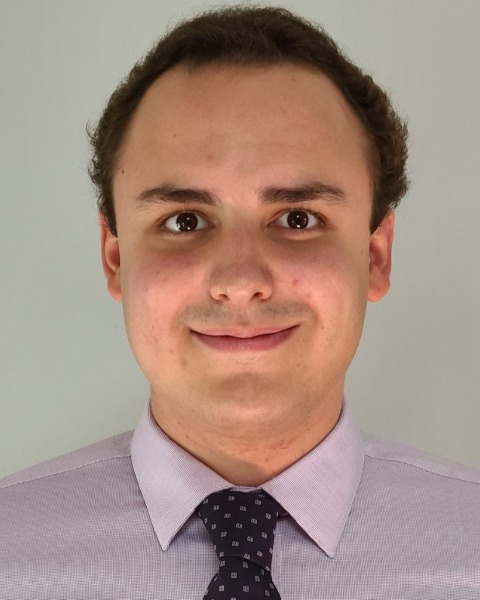Outcomes Following Prolonged Venovenous Extracorporeal Membrane Oxygenation in COVID-19
-
KD
Kenneth Dodd, MD
Physician
Hennepin County Medical Center
Minneapolis, MinnesotaDisclosure information not submitted.
-
SC
Stephen Crabbe, MD
Resident Physician
Advocate Christ Medical Center, United StatesDisclosure information not submitted.
-

Nathan Schoenrade, Medical Student
Midwestern University
Downers Grove, IllinoisDisclosure information not submitted.
-
AB
Abhinav Birda
Medical Student
Rosalind Franklin University School of Medicine, United StatesDisclosure information not submitted.
-
JA
Joseph Adams, DO
Resident Physician
Advocate Christ Medical Center, United StatesDisclosure information not submitted.
-
CM
Chad Morreale, DO
Resident Physician
Advocate Christ Medical Center, United StatesDisclosure information not submitted.
-
LE
Leon Eydelman, MD
Intensivist
Advocate Lutheran General Hospital, United StatesDisclosure information not submitted.
First Author(s)
Co-Author(s)
Title: Outcomes Following Prolonged Venovenous Extracorporeal Membrane Oxygenation in COVID-19
Introduction/Hypothesis: Veno-venous extracorporeal membrane oxygenation (VV ECMO) can be utilized in cases of severe acute respiratory distress syndrome (ARDS) due to coronavirus disease 2019 (COVID-19). Patients with COVID-19 often require prolonged support on VV ECMO, and little is known about the efficacy of prolonged VV ECMO support. In this study, we describe the mortality and clinical outcomes of patients on prolonged VV ECMO support.
Methods: This was a retrospective, observational study of consecutive adult patients requiring prolonged VV ECMO for COVID-19-associated ARDS at two centers in Cook County, Illinois between 3/1/2020 and 6/30/2021. Prolonged VV ECMO support was defined as 21 or more days on VV ECMO. The decision to initiate VV ECMO was based on established guidelines, but ultimately was left to the treating clinicians. Primary statistics are descriptive, reported as median (IQR) and n (%). Fisher exact test was used for comparisons between groups.
Results: Of 104 patients supported with VV ECMO during the study period, 41 were excluded from analysis (less than 21 days of VV ECMO support, n=26; still inpatient, n=10; transferred for lung transplantation evaluation, n=5). The median age was 55 (44-59) years-old and 49 (78%) of patients were male. Median BMI was 32 (30-37) kg/m^2 and the most common comorbidities were hypertension 28 (44%) and diabetes mellitus 20 (31%).
The duration of VV ECMO support was 51 (28-85) days (range 21-207 days). All 63 (100%) patients had at least one complication during admission. Length of stay in the intensive care unit was 63 (39-94) days and in the hospital was 74 (56-108) days.
Overall mortality was 31 (49%). Mortality stratified by duration of support was 11/31 (36%) for 21 to 49 days on VV ECMO, compared to 8/17 (47%; p = 0.5) for 50 to 89 days and 12/15 (80%; p = 0.003) for 90 days or greater. Discharge disposition for survivors was 4 (12%) long-term acute care, 1 (3%) subacute rehabilitation, 15 (45%) acute inpatient rehabilitation and 12 (36%) home.
Conclusions: In patients requiring prolonged VV ECMO support for COVID-19-associated ARDS, duration of support greater than 90 days was associated with a high morality. Future, large-scale studies should investigate additional factors associated with mortality in patients on prolonged VV ECMO.
